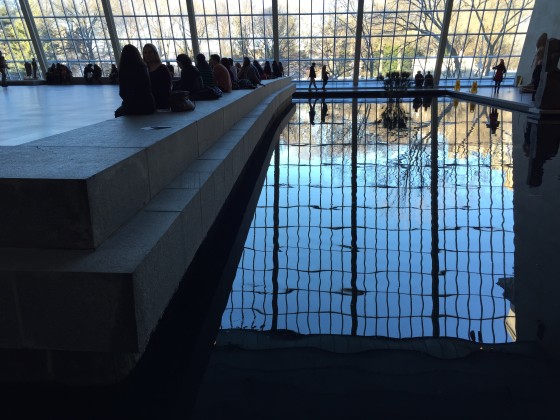
After receiving quite a bit of positive feedback on a recent newsletter piece, I am publishing it here…
At an end-of-year yoga class, the instructor asked us to form an intention for the coming year. I decided to focus on respond vs. react.
Responding instead of reacting is something I first heard when I read Stephen Covey’s 7 Habits of Highly Effective Families, a book which left a deep impression. Though I read Covey’s book many years ago, I still struggle with controlling my reactions and continue to wish I could do a better job of it.
In Six Simple Rules for a Better Life, I wrote about yelling a profanity in the direction of the referees during my daughter’s soccer game—unhappy with the other team’s overly aggressive (and even violent) style of play; and I wrote about a time I jumped into the middle of a situation with friends at a diner and got punched in the nose. Those are particularly dramatic examples—fortunately rare, and ones from which I learned lessons that stuck.
In the meantime, in my everyday life, I’ve had countless examples of reacting, when a response would have been better for everyone.
Like every other type of change, the first step is a desire to better myself. That leads to an awareness when I encounter the situation I want to change. Awareness leads to mindfulness—being present in the moment, taking a breath, pausing, and responding to the situation rather than reacting.
While I acknowledge I continue to have a long way to go, it’s also important to remind myself how far I have come:
- I snap at people way less than I once did (and of course, the worst part of snapping at people is they are often the people we love most, whose unconditional love we take for granted).
- I have learned just because I “know” my way is the best way doesn’t mean it’s the best way for someone else.
- I have learned it’s often best to keep my opinion to myself.
- I have learned to silently laugh at others’ otherwise-frustrating behaviors (and more importantly, to laugh at my own quirks, rather than allowing them to lead to frustration.)
- I have learned to complain less. I had even gotten into the habit of complaining to try to make light of situations, but no complaining is best of all.
- I give others the benefit of the doubt far more often, assuming what they do and say is not with ill intent, even if it causes me angst.
Here are some ways to help you respond vs. react:
- Take five deep breaths, pause for 60 seconds, take a short walk, or even wait 24 hours. Waiting allows you a much better chance than a gut reaction.
- Ask yourself how the way you want to answer something fits with your goals for the relationship.
- Try a complaint fast (as my friend Farnoosh Brock wrote about here.)
Don’t Sweat the Small Stuff is one of my favorite books. Its oft-forgotten sub-title is And It’s All Small Stuff and that’s probably the most important lesson of all. It really is all small stuff—or at least nearly all. We know the big stuff in life. But nearly everything is small stuff and that’s the last and maybe most important bullet point for the above list. Knowing it’s all small stuff, and mindfulness around this point, allows me to chill out, to let things go, and to respond and not react.
How do you respond vs. react? Join the conversation with your comments…
All the best,
David
